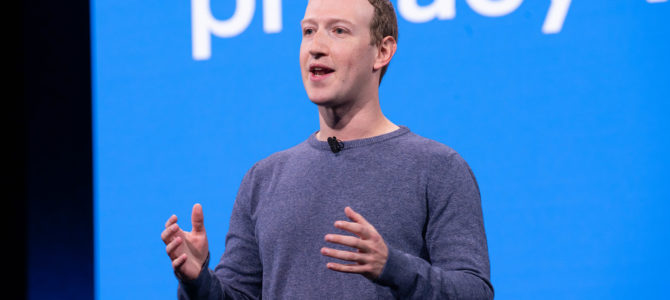Facebook might be a global company—the largest social network in the world—but Zuckerberg made an argument at Georgetown University on Thursday that America ought to lead the world in digital speech, a forum he referred to as the new “fifth estate.”
After a brief history lesson on the expansion of First Amendment freedoms in the United States, Zuckerberg declared that he is “proud that our values at Facebook are inspired by the American tradition which is more supportive of free expression than anywhere else in the world.”
Holding an event on free speech may seem like a bone tossed in the direction of conservatives which—my own organization included—are continually working to ensure free speech rights are granted equally in spite of censor-happy leftists. The move to address arguably the safest conservative cause in the eyes of Zuckerberg and his woke colleagues makes sense as Facebook has not been a great friend to conservatives in recent memory.
With reasonable doubt as to the sincerity of Facebook and its founder’s commitment to unencumbered expression when it comes to conservative ideas, Zuckerberg’s 37-minute long address saw a CEO who wants to preserve what he called American “values” on the global internet. Sounding almost Trump-like, Zuckerberg lit into China for “exporting their own vision of the internet to other countries.”
“Until recently,” he noted, “the internet in almost every country outside China has been defined by American platforms with strong free expression values. There’s no guarantee these values will win out,” he warned, adding, “A decade ago, almost all of the major internet platforms were American. Today, six of the top ten are Chinese.”
To illustrate the current impact of such influence, Zuckerberg singles out TikTok—a Chinese app—for censoring content showing freedom fighters in Hong Kong not just in China but also for users in the United States. “Is that the internet we want?” he asks.
Unlike the NBA, Zuckerberg didn’t apologize or grovel at the feet of communist thugs to get Facebook access to China. Instead, he’s proud of being rebuffed by China. “They never let us in…and now we have more freedom to speak out and stand up for the values we believe in and fight for free expression around the world.”
Despite the ongoing fracas surrounding Facebook’s operation in the US, the threat posed by China’s censors online, both here in America and around the world, seems like a point of simple moral clarity for Zuckerberg.
“The question of which nation’s values will determine what speech is allowed for decades to come really puts into perspective our debates about the content issues of the day,” he remarked. “While we may disagree on exactly where to draw the line on specific issues, at least we can disagree—that’s exactly what free expression is… If another nation’s platforms set the rules, our discourse will be defined by a completely different set of values.”
His last point on this matter was, in not so many words, a call to defeat China in a new sort of cold war between freedom and totalitarianism. The same ideology at the heart of the evil Soviet empire Ronald Reagan called out is the one gaining steam from communists in China. But perhaps what is more dangerous about this new threat is the reality that it can reach our shores without being strapped to an ICBM, sent into our midst without a briefcase full of nuclear codes. Instead, TikTok and other platforms quietly but deviously shape the content their users consume. This broadside against communist China raises a question: Is Facebook’s censorship of conservative ideas any different from China’s censorship of Hong Kong freedom fighters?
Time will tell if Zuckerberg’s words are put into sustained action or if they were an attempt to grapple for high ground in a swirling storm as leftists promise to break up Facebook and Chinese censors threaten his bottom line. Intentional or not, the arguments he made show that America is a rare and unique force for good with freedoms that are the envy of the world. These ideas deserve to be praised more frequently by those like Zuckerberg who’ve amassed the wealth, power, and status only possible in America.









